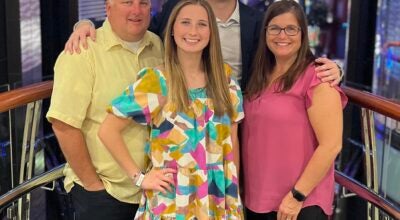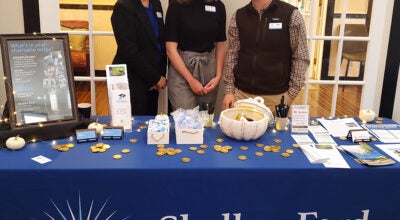The Winston-Salem Symphony launches new digital series
Published 12:00 am Thursday, June 25, 2020
|
Getting your Trinity Audio player ready...
|
WINSTON-SALEM — The Winston-Salem Symphony has announced “Etherbound,” a new series that promotes orchestral music and artistic collaborations in the digital space.
The “Symphony Unbound” series launched two years ago as a way of bridging musical genres and bringing the Winston-Salem Symphony into unexpected, non-traditional venues throughout the community. Audiences have enjoyed folk music and bluegrass collaborations at The Ramkat and Muddy Creek Café, heavy metal for string quartet at Krankies, and more. With Etherbound, the symphony continues its commitment to artistic innovation by bringing audiences collaborative performances that are only possible online. The coronavirus pandemic has shuttered the live music experience for now, but recent projects with local filmmakers have shown that unexpected, non-traditional presentations of music — online, in the ether — can be a beautiful way to connect with one another.
The first project of Etherbound features a collaboration with John Jordan Films and Terpsicorps Theatre of Dance. Aaron Copland’s “Quiet City” provides the musical soundtrack and inspiration for this artistic response to the COVID-19 pandemic. With more than 32 hours of video footage and more than 900 audio tracks, this project was no small feat. In mid-May, members of the Winston-Salem Symphony went to The Ramkat, one section at a time, to record their parts while following social distancing guidelines. Winston-Salem Symphony Music Director Tim Redmond, Assistant Conductor Karen Ní Bhroin, and producer Toby Hession ran the recording sessions from London and Dublin using Zoom, and filmmaker John Jordan was present to capture it all. Gavin Stewart and Vanessa Owen, a married couple from Old Fort are the two dancers from Terpsicorps who provided the choreography, which they performed throughout Winston-Salem.
“Quiet City is a work I have known and loved since I was at school,” remarked Timothy Redmond. “Its haunting beauty and quiet nostalgia seem to evoke a mood that is entirely appropriate for the world in which we find ourselves right now. And so, when we were looking for our first full Etherbound project, Copland’s timeless score seemed an obvious choice.”
“The chance to collaborate with other arts organizations to create a work that combines film, dance, and music was irresistible and watching each layer build as we’ve worked over the past four weeks has been inspiring and exciting,” Redmond continued. “You can argue that no city is ever truly quiet. But until we can unlock the doors of our concert halls, our theaters, and our dance studios it will be quieter than it should be. This film is our reflection on that quietness.”
Quiet City began life as a play by Irwin Shaw for New York’s Group Theatre in 1939, and Aaron Copland agreed to write the incidental music. The play itself was a failure and closed after only three preview performances. The composer reworked the original score to be a standalone piece of music for trumpet, English horn, and strings. Quiet City suggests and encourages introspection. The music conjures up the isolation one can feel in a city even while surrounded by thousands of other people. In this work, Aaron Copland created a piece of music that has resonated for 80 years and still speaks to the world today.
To view the video and read more about Aaron Copland’s composition, go to wssymphony.org/etherbound.
Individuals interested in staying up to date about Winston-Salem Symphony news may join the Winston-Salem Symphony email list at wssymphony.org/email. For more information, call the symphony at 336-725-1035.



